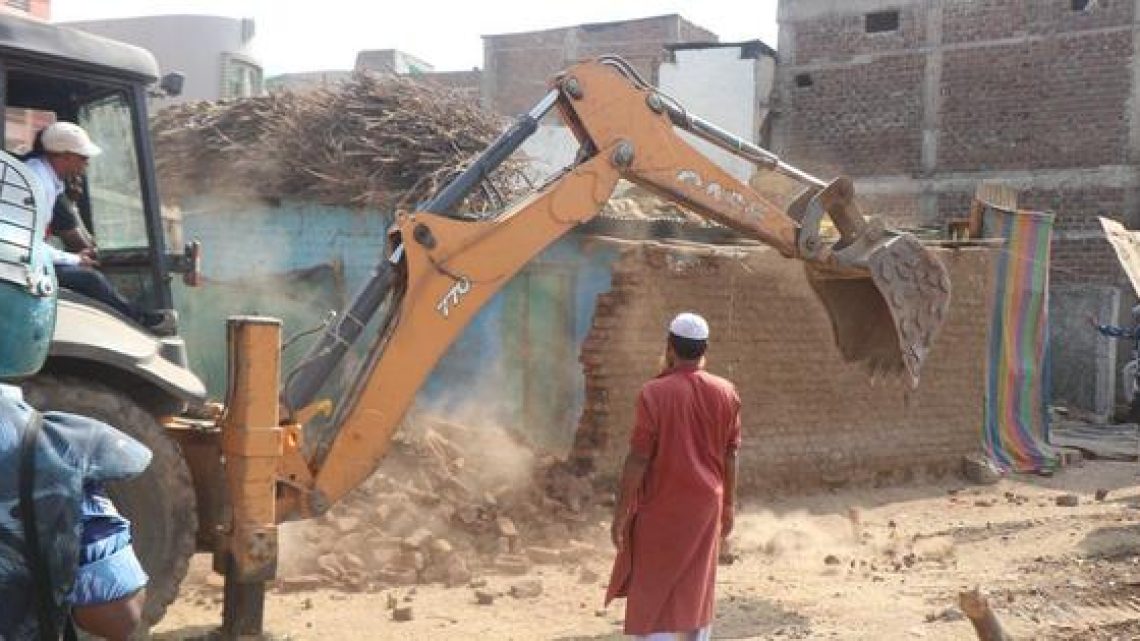
Alarming Rise in Demolitions of Muslim-Owned Properties in India
September 23, 2024A recent report reveals that thousands of Muslim-owned properties, including mosques, have been demolished across India over the past eight years.
The demolition campaign began in 2017 in Uttar Pradesh but has since expanded to various states such as Madhya Pradesh, Assam, Maharashtra, Uttarakhand, Rajasthan, Himachal Pradesh, and Haryana. This widespread initiative raises serious concerns about religious discrimination.
According to Amnesty International, 128 structures owned mostly by Muslims were demolished between April and June 2022 alone. The report also notes recent demolitions, including a mosque in Delhi, a madrasa in Uttarakhand, and homes belonging to Muslims in Assam.
Authorities have justified these actions by labeling them as efforts to remove illegal constructions. However, critics argue that this campaign disproportionately targets Muslim properties, raising questions about the motivations behind these demolitions.
The impact on the affected communities has been devastating. The loss of places of worship and homes is not merely a structural issue; it undermines the social fabric and cultural heritage of the communities involved.
In response to growing concerns, the Indian Supreme Court has recently imposed a temporary ban on further demolitions. This decision reflects increasing scrutiny over the motivations and processes involved in these actions.
The demolitions have sparked outrage and protests among various human rights organizations and civil society groups. Many see this as part of a larger pattern of marginalization affecting Muslims in India.
The targeting of Muslim-owned properties is seen by many as a reflection of rising communal tensions in the country. Critics assert that the government’s actions contribute to an atmosphere of fear and insecurity among minority communities.
The report calls for accountability and emphasizes the need for a transparent legal process regarding demolitions. Authorities must ensure that such actions are not driven by prejudice or political motives.
As the situation evolves, ongoing monitoring by human rights organizations will be crucial. These groups play a vital role in documenting and advocating for the rights of affected communities.
To conclude, the alarming rise in demolitions of Muslim-owned properties highlights deep-rooted issues of discrimination and injustice towards Muslims in India. A sustained advocacy is needed to protect minority rights in the country.
A recent report reveals that thousands of Muslim-owned properties, including mosques, have been demolished across India over the past eight years.
The demolition campaign began in 2017 in Uttar Pradesh but has since expanded to various states such as Madhya Pradesh, Assam, Maharashtra, Uttarakhand, Rajasthan, Himachal Pradesh, and Haryana. This widespread initiative raises serious concerns about religious discrimination.
According to Amnesty International, 128 structures owned mostly by Muslims were demolished between April and June 2022 alone. The report also notes recent demolitions, including a mosque in Delhi, a madrasa in Uttarakhand, and homes belonging to Muslims in Assam.
Authorities have justified these actions by labeling them as efforts to remove illegal constructions. However, critics argue that this campaign disproportionately targets Muslim properties, raising questions about the motivations behind these demolitions.
The impact on the affected communities has been devastating. The loss of places of worship and homes is not merely a structural issue; it undermines the social fabric and cultural heritage of the communities involved.
In response to growing concerns, the Indian Supreme Court has recently imposed a temporary ban on further demolitions. This decision reflects increasing scrutiny over the motivations and processes involved in these actions.
The demolitions have sparked outrage and protests among various human rights organizations and civil society groups. Many see this as part of a larger pattern of marginalization affecting Muslims in India.
The targeting of Muslim-owned properties is seen by many as a reflection of rising communal tensions in the country. Critics assert that the government’s actions contribute to an atmosphere of fear and insecurity among minority communities.
The report calls for accountability and emphasizes the need for a transparent legal process regarding demolitions. Authorities must ensure that such actions are not driven by prejudice or political motives.
As the situation evolves, ongoing monitoring by human rights organizations will be crucial. These groups play a vital role in documenting and advocating for the rights of affected communities.
To conclude, the alarming rise in demolitions of Muslim-owned properties highlights deep-rooted issues of discrimination and injustice towards Muslims in India. A sustained advocacy is needed to protect minority rights in the country.

